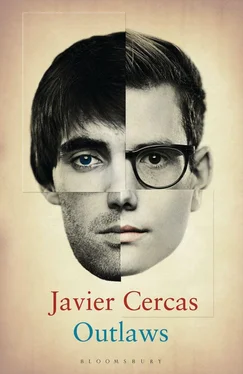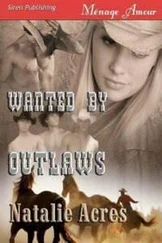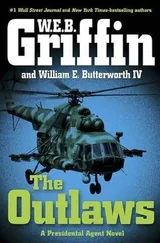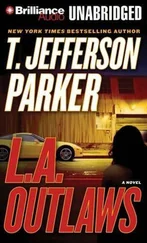‘I went back to the car. Have you got the hash? asked Dani as soon as I opened the door. I said yes and, as he put the car into first gear and accelerated, Paco celebrated. Cool, he said. And the chick? What chick? I asked. The one who sold you the gear, Paco said. What about her? I asked. Quite the quinqui , he said. Where do you know her from? Dani interrupted: Yeah, she’s a quinqui , sure, but is she a fox or do all chicks look good at night in the distance? She’s pretty good-looking, I said. But don’t get your hopes up, I only know her to see her. I’m not getting any hopes up. Though get to know her a bit better she might suck you off. Stopped at an intersection, Paco let go of the steering wheel for a moment to simulate a blowjob. Hopes? he said, grabbing the steering wheel again. Fuck, I wouldn’t let that chick suck my cock if I was dead: she might bite it off. Dani burst out laughing. Say what you like, dickhead, I said. But don’t you dare say anything to Montse. I don’t want her ripping mine off, and for nothing. She’s a right one, your sister. Now it was Paco’s turn to laugh. We’d left Vilarroja, were driving past the cemetery and I suddenly felt sick, as if I was carsick or coming down with something. In the front seats, Paco and Dani kept talking as we drove back into the city centre.
‘I spent that night and the next day thinking about Tere. I was full of doubts. I wanted to see her and didn’t want to see her. I wanted to go to Rufus and didn’t want to go to Rufus. I wanted to leave Montse and my friends for one night and didn’t want to at the same time. In the end I didn’t see Tere or go to Rufus or abandon my friends, but Saturday night was a strange night: although I was at Paco and Montse’s place until very late, I couldn’t get the thought out of my head that I’d stood Tere up again or stop imagining her at Rufus, bombarded by the changing lights that flashed over the dance floor, dancing to the same songs or almost the same songs as the summer before that I’d watched her dance to so many times from the bar while her body adapted to the music as naturally as ever — as naturally as a glove fits a hand and as a fire gives off heat — dancing alone while waiting for me in vain.
‘On Sunday morning I woke up feeling anxious, with the guilty certainty of having committed a serious mistake the night before, and to remedy it I decided that very afternoon I’d go and look for Tere at the bar in Vilarroja where I’d run into her. But as the morning wore on reality weakened my determination — I had no one to drive me to Vilarroja, I couldn’t ask Paco, couldn’t be sure of finding Tere and, on top of everything, I’d arranged to meet Montse and the others after lunch — so, feeling like that really was the end of the water margin, that afternoon I didn’t go to Vilarroja. And it turned out really to be the end, because it was all over then.’
‘Do you mean that was the last time you saw Tere back then?’
‘Yes.’
‘You didn’t hear anything more about Zarco either?’
‘No.’
‘How about we leave it there for today.’
‘That’d be just fine.’
‘Do you remember when you next saw Zarco?’
‘At the end of 1999, here in Gerona.’
‘He was no longer the same then.’
‘No, of course not.’
‘I mean that he’d had time to create and destroy his own myth.’
‘In a manner of speaking. In any case it’s true that, for Zarco, everything went very fast. In fact, my impression is that when I knew him, in the late seventies, Zarco was a sort of precursor, and when I saw him again, in the late nineties, he was almost an anachronism, if not a posthumous persona.’
‘From precursor to anachronism in just twenty years.’
‘That’s right. When I knew him he was a forerunner in a way of the masses of juvenile delinquents who filled the jails, the newspapers, radio, television and cinema screens in the eighties.’
‘I’d say he not only announced the phenomenon: he played the part better than anybody.’
‘Could be.’
‘Tell me the name of a delinquent from back then better known than Zarco.’
‘OK, you’re right. But, be that as it may, by the end of the nineties it was over; that’s why I say that by then Zarco was a posthumous persona, a sort of castaway from another era: at that time there was no longer the slightest media interest in juvenile delinquents, there were no longer films about juvenile delinquents, or hardly any juvenile delinquents. All that was passé: the country had completely changed by then, the hard years of juvenile delinquency were considered the last throes of the economic misery, repression and lack of liberties of the Franco years and, after twenty years of democracy, the dictatorship seemed to have been left very far behind and we were all living in an apparently interminable intoxication of optimism and money.
‘The city had also completely changed. By that time Gerona was no longer the post-war city it still had been at the end of the seventies but had become a post-modern city, a picture postcard, cheerful, interchangeable, touristy and ridiculously pleased with itself. Actually, little remained of the Gerona of my adolescence. The charnegos had disappeared, annihilated by deprivation and heroin or dissolved into the country’s economic wellbeing, with secure jobs and children and grandchildren who went to private schools and spoke Catalan, because with democracy Catalan had become an official, or co-official, language. The ring of charnego neighbourhoods that used to menace the city centre had also disappeared, of course; or rather had transformed into something else: some neighbourhoods, like Germans Sàbat, Vilarroja or Pont Major, were now prosperous neighbourhoods; others, like Salt, had become independent from the city and were flooded with African immigrants; only Font de la Pòlvora, the last bastion of the final inhabitants of the prefabs, had degenerated into a ghetto of delinquency and drugs. I don’t know if I told you that the prefabs themselves were demolished: now the ground where they had stood was a park in the middle of Fontajau, a newly built neighbourhood of small duplexes with garages, gardens and backyard barbecues.
‘Over here, on this side of the Ter, La Devesa was still more or less the same, but La Devesa was no longer an outlying suburban neighbourhood; the city had absorbed it: it had grown to both sides of the river and the fields and orchards that surrounded the tower blocks of Caterina Albert in my childhood had been developed. The Marist Brothers were still in their place, though not the Vilaró arcade, which closed not long after I stopped going there and Señor Tomàs retired. As for the red-light district, it had not survived the city’s changes; but, unlike La Devesa, which had turned into a middle-class neighbourhood, the district had become an elite neighbourhood: where twenty years earlier the narrow stinking streets swarmed with the city’s riffraff, grimy bars, decadent brothels, dark poky little rooms, now there are cute little plazas, terrace bars, chic restaurants and lofts done up by trendy architects for visiting artists, foreign millionaires and successful professionals.’
‘Like yourself.’
‘More or less.’
‘Do you consider yourself a successful professional?’
‘It’s not that I consider myself: I am. Fourteen people work for my firm, among them six lawyers; we deal with around one hundred significant cases a year. I call that success. How about you?’
‘Me too. Although, if you don’t mind me saying, you don’t talk like a successful professional.’
‘And how do successful professionals talk?’
Читать дальше












